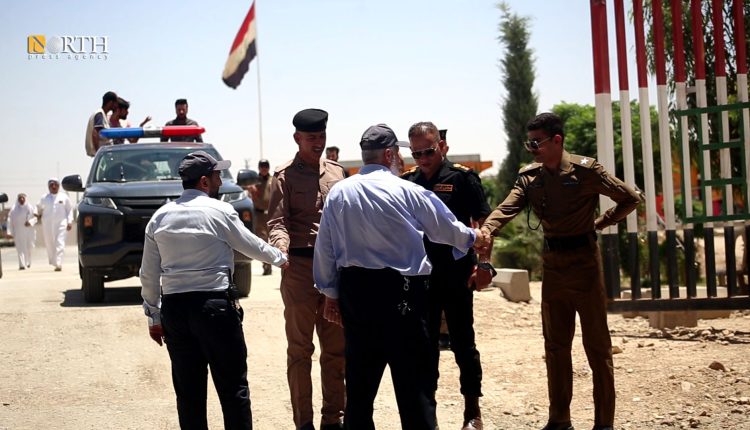By Ali al-Beki’
DEIR EZ-ZOR, Syria (North Press) – The town of Abu Kamal, located in the eastern countryside of Deir ez-Zor on the Syrian-Iraqi border, has long served as a strategic hub for drug and arms trafficking. Today, it remains a flashpoint threatening the region’s social fabric and community cohesion.
The consequences of these illicit activities go far beyond security concerns. Rising drug abuse and the proliferation of illegal weapons have contributed to a surge in crime and growing instability, particularly among youth.
“Drugs were widespread under former regime”
“Drug and arms trafficking were widespread under the former regime,” says Ahmad al-Ma’ruf (34), a resident of Abu Kamal. “Armed militias roamed freely. Now that the regime has fallen, we hope to see better cooperation between the government and the people to improve conditions.”
In recent years, the region has come under significant Iranian influence, serving as a vital corridor for Iranian-backed militias moving from Iraq into central Syria. This has led to increased trafficking activity.
Al-Ma’ruf notes to Abu Kamal’s strategic location as a key reason it became a primary conduit for smuggling weapons and drugs. “The former regime not only tolerated these activities—it promoted them. In contrast, the current authorities appear more aware of the risks,” he said, urging collective societal action to combat this crisis.
Na’mah al-Ali al-Tarsh, another local resident, recalled how drugs were once as easily accessible as water. “It was their method of destroying public awareness,” he said, calling for public education, greater vigilance, and the reporting of dealers and users to authorities.
Mohammad Enad al-Hamed, also from Abu Kamal, stressed the need for awareness campaigns through schools and mosques. “We must also establish rehabilitation centers to treat and support users,” he said, emphasizing the community’s role alongside internal security forces.
Al-Hamed also noted the city’s extensive and porous border, which demands greater resources and coordination to curb the influx of illicit substances.
Security measures and future plans
Abdullah al-Hussein, the regional security chief in Abu Kamal, told North Press that security conditions have improved notably thanks to concrete measures, including the demarcation of borders, the establishment of surveillance posts in both Abu Kamal and al-Qaim, and intensified patrols.
“Several individuals involved in trafficking have been arrested, both inside the city and along the border,” he said, crediting local residents for providing vital intelligence.
According to al-Hussein, some traffickers had built private smuggling routes under the former regime, operating beyond the reach of official oversight. “Today, we face a different challenge—many of these individuals are armed with heavy weaponry and advanced equipment,” he warned.
The former Iranian presence, he explained, played a major role in entrenching these illicit networks. “The area was under significant Iranian influence, with underground facilities and headquarters. Preventing the entry of narcotics into Syria is now a top security priority.”
Al-Hussein called for a broader awareness campaign using mosques, public forums, and media platforms to highlight the devastating impact of drug abuse on Syria’s youth. He also outlined plans for an integrated border security strategy in coordination with Iraqi authorities. “New checkpoints will be established along the Syria-Iraq border to intercept smuggled goods,” he said.
Coordinated crackdown
On May 20, the Syrian Ministry of Interior announced the launch of a joint security campaign in Deir ez-Zor in cooperation with General Security forces. The campaign resulted in the arrest of more than 20 individuals during raids on major drug and arms trafficking hubs in the town of al-Hari, just 5 km from the Iraqi border.
The crackdown came amid heightened security following a car bomb attack on a police station in al-Mayadin, which killed four police officers and a civilian.
Earlier in April, the General Security forces had also conducted raids in al-Hari, arresting several traffickers linked to Iranian-backed militias and seizing large quantities of narcotic pills. Since then, border police presence has been increased, and key checkpoints have been reinforced.

